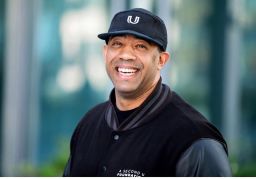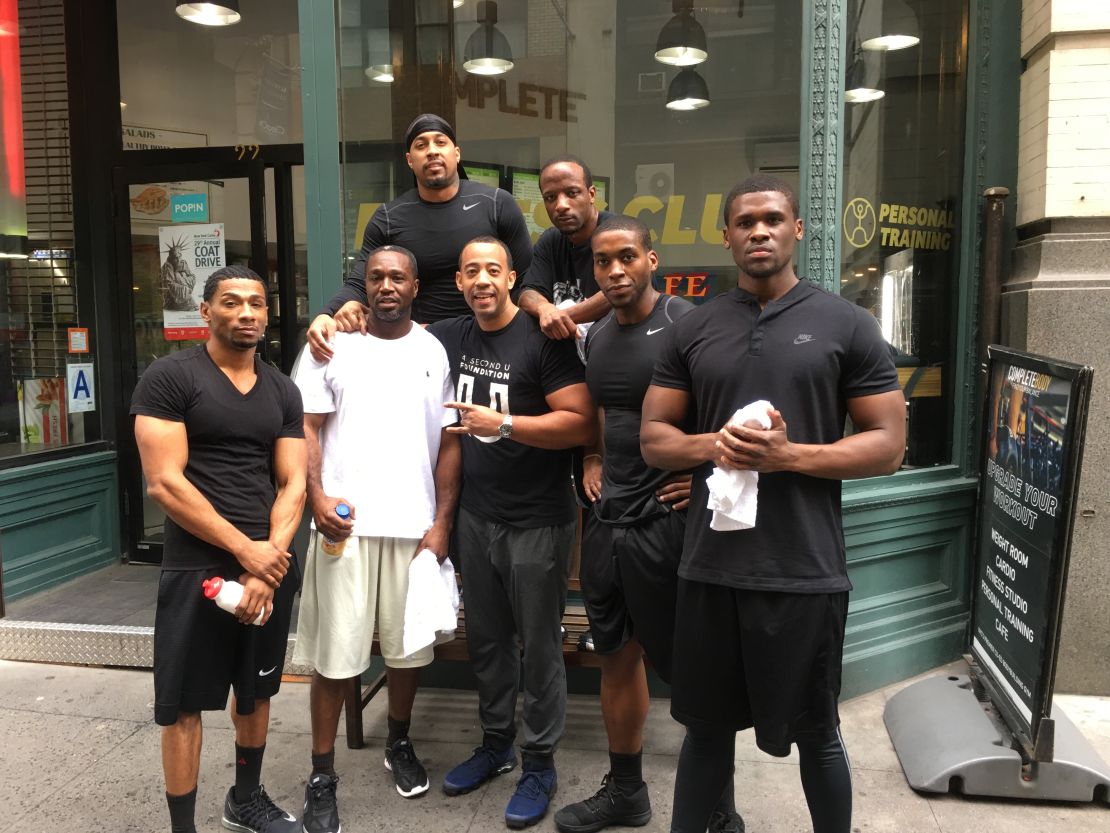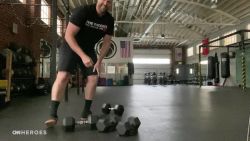When the pandemic shut down New York City this past spring, personal trainer Hector Guadalupe was ready. He had already moved his workout sessions online.
But he hadn’t anticipated the impact the situation would have on his clients.
“Most of our clients were just really upset and depressed,” said Guadalupe, 42. “We all felt isolated. We all felt locked down.”
It’s a feeling Guadalupe knows all too well – from serving 10 years in prison for drug trafficking.
“I spent close to 31 months in solitary confinement,” he said. “I could’ve sat and let depression take over. … But guess what? What I do with my time is extremely valuable.”
In prison, Guadalupe discovered fitness and created a strict regimen for himself – exercising, meditating and reading each day.
“While in the hole, I would spend half a day doing certain exercises to keep my blood moving through my body and keep my body strong,” he said. “I couldn’t allow where I was housed at to be controlling me.”
During the pandemic, Guadalupe has been sharing his insight with his clients.
“(Put) your mind to work, your body to work,” he said. “You’re in control of your time.”
“There’s growth in struggle. Plenty of us (are) going to come out of this and be even better than we were before.”
Kerry Docherty, a longtime client, was inspired.
“To be able to work out with a trainer who can give you context about, this is really not that bad compared to what they’ve been through, it just helps you shift your perspective and have a little bit more gratitude,” she said. “His energy is contagious.”

Guadalupe used that energy to build his successful career after being released from prison in 2012. And for the past five years, he’s helped others follow his path.
His nonprofit, A Second U Foundation, helps formerly incarcerated men and women get certified as personal trainers and find jobs in the fitness industry. To date, Guadalupe says nearly 200 people have graduated from his program and not one has reoffended.
The group’s recidivism rate is impressive when compared to national statistics. In 2019, the US Sentencing Commission reported that 40-60% of federal inmates reoffend after their release.
But Guadalupe isn’t surprised by his graduates’ success.
“People won’t reoffend as long as they’re provided livable wages. So, they start at $35 an hour. They top out at $75 an hour,” he said. “A lot of families and kids get fed off of that.”
One of those families is Jason Varner’s. A former high school football star, he’d gotten involved in drug trafficking and ended up in prison for assault, but never lost his interest in fitness.
“All my life I’ve been working out. Even when I was incarcerated, I was working out … training guys inside,” he said.
When Varner was released, A Second U Foundation helped him make a fresh start. He graduated and now works with Guadalupe’s training business, which only employs formerly incarcerated trainers.
“I just like to see people achieve goals … I love it!” Varner said. “I’ve got children. I want to live a better life for them. I want to help them achieve their goals.”
“It’s all in the name, A Second U – a second, new you!”
For Guadalupe, that’s what it’s all about.
“It’s about understanding that people need an opportunity,” he said. “We all deserve a second chance.”
CNN’s Kathleen Toner spoke with Guadalupe about his work. Below is an edited version of their conversation.
CNN: How did you end up in prison and why did you eventually turn to fitness?
Hector Guadalupe: I’m from Brooklyn, born and raised in what I call “the old Williamsburg.” It’s a fun place now, but in the ’80s and ‘90s, it was very different. Both my parents are deceased, so by the age of 12, I was in the streets a lot. I grew up selling narcotics, trying to survive. I was sentenced to 10 years to life at the age of 23.
Three or four years into my sentence, I realized that I didn’t want to keep doing what I’d been doing to survive anymore, so I started working on myself. Working out, to me – it’s freedom and it’s therapy. It’s where I can face myself and just physically build from the inside out. I lost 90 pounds, learned to train and helped people get in shape – even, believe it or not, the staff. I did tons of certifications and things that I needed to build a career for myself once coming home.
CNN: What inspired you to start your nonprofit?

Guadalupe: When I was released, I had all the credentials and was really excited to get to work. My first eight months home it was just rough – couldn’t get a lot of second interviews, no callback. No corporate health club wanted to hire me. Eventually, I begged a young lady who was a manager at a club, and she gave me an opportunity.
Five years ago, I started A Second U Foundation to help people like myself so they wouldn’t have to deal with these challenges on their own. I wanted them to have a community behind them. A Second U is also like a Big Brother program where you can, at any given time, call on one of us to be that guide with any needs you might have.
CNN: Your time in prison enabled you to help your clients cope during the pandemic. Do you think your trainers offer something unique to the people they train?
Guadalupe: Physically, we were able to get in top shape in a 6 feet by 9 feet cell. Having a gym or access to equipment is just a luxury. It’s just as easy for us to help someone reach their goals physically with zero. But emotionally and mentally, we’ve suffered, and we had to find ways to deal with life’s circumstances. I believe that built a certain type of resilience in me and every single person that has graduated from our program. No matter what your day is like, no matter how rough it may be, we’re a group of people that can relate.
If someone finds out you did 10 years in prison, they’re less likely to want to learn your story and connect with you. In a gym setting, it’s not a threatening atmosphere. Endorphins are flowing. The state of wellness, period, just breeds positivity. It’s really about human connection. Opportunity and second chances are for all.





















